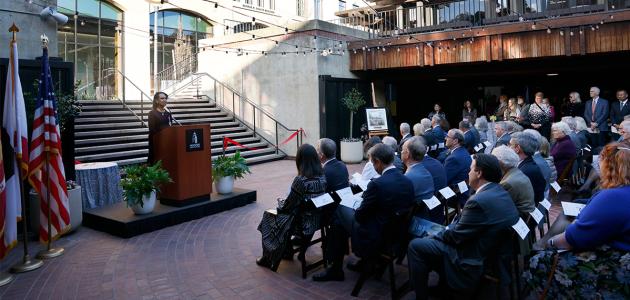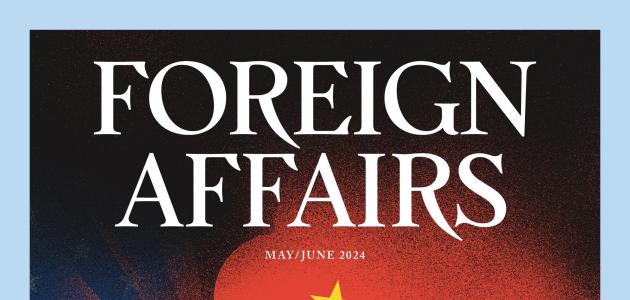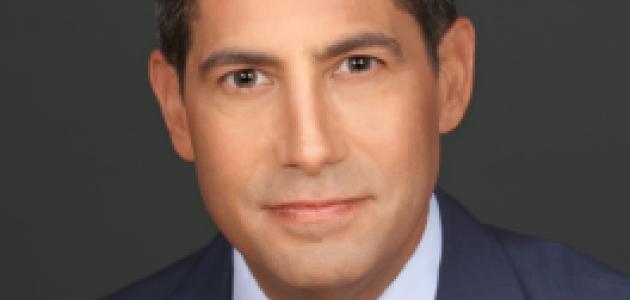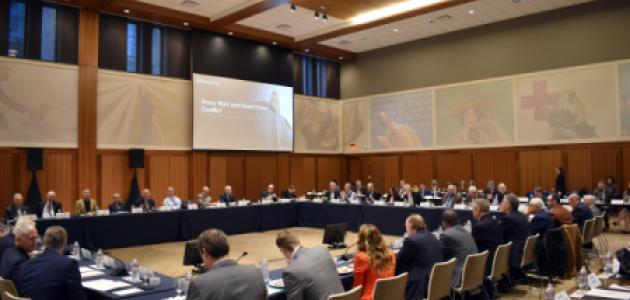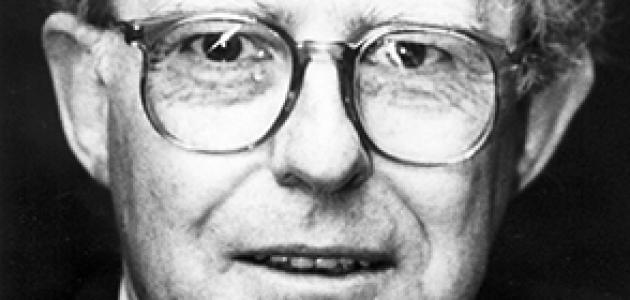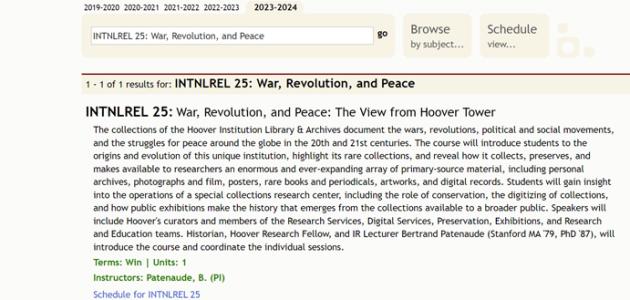Hoover’s Spring 2017 Retreat brought together Hoover supporters and fellows to meet around topics that shape nations yet also touch individual lives in personal ways at home and abroad. Riveting presentations and incisive question-and-answer periods sustained an energy level that felt appropriate to the rapidly moving history in which Hoover and its supporters are playing a role.
IDEAS MUST BE DEFENSES FOR FREEDOM
The event kicked off with a Sunday dinner featuring remarks by Hoover research fellow Ayaan Hirsi Ali, who spoke on “political Islam” as an ideological movement. Her analysis gave the audience a quick but nuanced insight into those factions within Islam that threaten Western freedom and democracy. She listed examples of actions that proponents of free societies can take to confront the ideology behind Islamist radicalism—a strategy she asserted was as critical as military action. Much of her work at Hoover is aimed at advancing that very strategy.
Monday night, the dinner audience was treated to a talk by Hoover research fellow Peter Robinson, who described his role in writing President Reagan’s famous speech in West Berlin in 1987 and the intense internal battle over whether to include—or delete—the now-famous challenge, “Mr. Gorbachev, tear down this wall!” Reagan (and Robinson) won. Robinson presented, on large screens, video segments of the speech and also displayed a heavily marked-up page of the speech’s most controversial passage.
He also reminded the audience that a line from the speech—“This wall will fall. Beliefs become reality”—was a quote from graffiti he saw on the Berlin Wall. Robinson remarked, “You start with a belief, then history follows.” That’s what the Reagan revolution was about, and according to Robinson, “Hoover was right in the middle of it.” He listed Hoover scholars who assisted Reagan and encouraged the crowd: “Preserving the national memory is hard work, and the Hoover Institution does it. Educating the next generation is hard work, and the Hoover Institution is doing it.”
AMERICA, AND THE WORLD, AT A CROSSROADS
Other speakers included Condoleezza Rice, former US secretary of state and the Thomas and Barbara Stephenson Senior Fellow at Hoover, who identified the virtues and risks of the four big trends dominating national and world events: nationalism, populism, protectionism, and isolationism. The motives driving these factors can lead to problems or, on the other hand, to “something better and more enduring” than what has emerged in the last several years. She also gave a tour of global hot spots and challenges. This included an assessment of world leaders, many of whom she knows personally.
Victor Davis Hanson, the Martin and Illie Anderson Senior Fellow at Hoover, also assessed Donald Trump’s administration in terms of overall political megatrends and what his performance so far could mean for all the topics discussed at the retreat.
For two days, other Hoover fellows led supporters though stimulating insider insights on tax reform, the national and world economies, health care reform, the Supreme Court, new trends in political risk assessment, and the need—expressed by Hoover research fellow Kiron Skinner—for America to have a “grand strategy” in foreign policy.
Terms that kept surfacing in the presentations included crossroads, risk, transition, reform, strategy, future, challenge, ideology. The audience seemed impressed with a sense of the gravity of the times in which we live and in which the Hoover Institution and every supporter plays a part. Indeed, ideas continue to define a free society; thanks to our supporters, Hoover is committed to advancing those ideas for the good of America and humanity.







